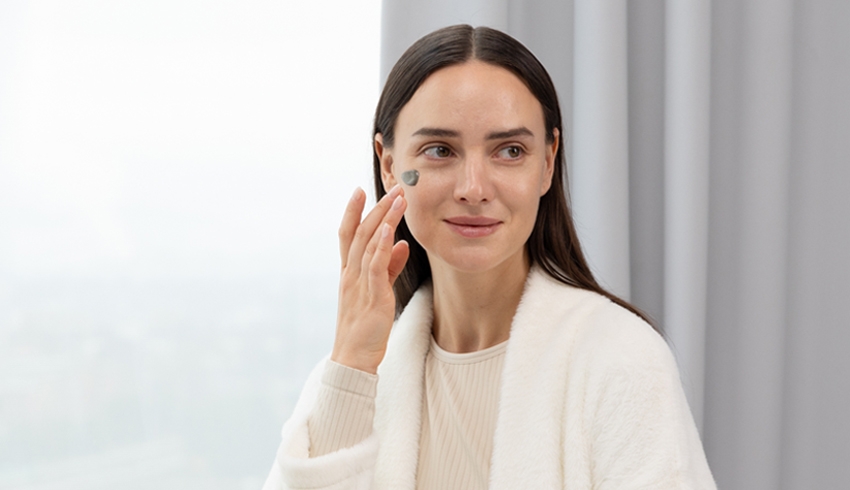As natural skin care ingredients grow in popularity, charcoal’s detoxifying and skin purifying properties are becoming increasingly recognized. But does charcoal live up to its reputation? This ingredient is highly effective at reducing excess oil and impurities from the skin, helping remove buildup and combat clogged pores such as blackheads. You might be surprised to know. It also gives your skin a matte finish, removes unnecessary shine that is typical of oily skin, and leaves your skin clear and elegant. Let’s take a closer look at the benefits and effects of charcoal in skin care.
Types of charcoal in skin care
Derived from natural sources such as coconut shells, bamboo, and oak, charcoal is known for its ability to naturally detoxify and balance the skin. From a skin care perspective, he focuses on two main types: activated charcoal and binchotan charcoal. Let’s take a closer look at the most common benefits and claims regarding the effectiveness of charcoal.
activated carbon
Activated charcoal is derived from natural materials such as coconut shells and oak wood, and is effective in reducing comedones. This may be partially due to its ability to absorb excess oil and prevent pore clogging.the porous The texture means it is often used for deep cleansing the skin.
Charcoal
Binchotan is a traditional Japanese charcoal made from high-quality ubame oak wood, although it is not well known in Western skin care. It also has detoxifying properties and helps balance the skin. It is prized for its ability to adsorb, rather than absorb, impurities. This means that impurities attached to the skin are absorbed and attached to the surface of the charcoal. This adsorption action makes activated charcoal a popular choice for toning and balancing oily or blemished skin. Now that you know what type of charcoal to use in your products, let’s take a look at its benefits.
What are the benefits of charcoal in skin care?
Charcoal helps treat clogged pores, a condition characterized by the accumulation of debris, dead skin cells, cosmetics, and other impurities within the pores. If you experience any of the following symptoms, your pores may be clogged.
- excess oil
- enlarged pores
- dark spots
- white head
- painful or dull appearance
- Rough, bumpy, uneven skin texture
Charcoal is useful for:
Manage sebum and pore enlargement to remove impurities
For those with oily or acne-prone skin, activated charcoal can help manage sebum overproduction that causes enlarged pores. Enlarged pores can easily become clogged with oil, dirt, and dead skin cells, leading to uneven skin texture. Charcoal draws out oil and debris, reducing the possibility of clogged pores.
Regulates oil content and balances the skin
Charcoal helps create a smoother, more refined skin texture by effectively removing debris and excess sebum (which causes clogged pores). This is especially advantageous for people with oily or combination skin types.
Detox and deep cleansing
One of the central claims is that charcoal can act as a magnet for impurities, drawing them out of the skin’s pores. This is based on its highly porous structure, which gives it a large surface area for trapping impurities. This detoxifying property improves skin health by removing bacteria and oil from pores, removing trapped dirt, and reducing congestion.
exfoliation and whitening
Activated charcoal is known for its exfoliating power due to its fine, grainy texture, making it ideal for use in face and body scrubs. Regular exfoliation removes dead skin cells and makes your skin look more radiant and refreshed. This texture gently and effectively polishes the skin’s surface, removing dead skin cells for brighter, smoother skin.
Is charcoal good for your skin?Considerations and recommendations
The benefits of charcoal in skin care are numerous, but different skin types and sensitivities can respond differently to charcoal-based products, so it’s important to approach its use with certain considerations in mind.
skin type and sensitivity
Not all skin is created equal. Naturally, this means that each skin type has different needs. People with dry or sensitive skin may find charcoal products a little harsh as they can worsen dryness or cause irritation. But this doesn’t mean it’s off limits. It’s important to perform a patch test and introduce new products gradually to see how your skin reacts. Many people find that with the right frequency and product formulation, charcoal can be a beneficial addition to their daily routine, regardless of their skin type.
Correct usage and frequency
Skin care isn’t one size fits all, and this is especially true of charcoal products. The key to reaping the benefits of charcoal without overdoing it is understanding how to use it properly and how often. This includes considering other products in your daily life, how often you use products containing charcoal, and in what form you use them.
Now, back to the burning question, is charcoal good for your skin? It appears that charcoal, when used correctly and with your individual skin type in mind, can actually benefit your skin, from reducing imperfections to polishing the skin’s surface. Successful skin care relies on thoughtful formulations tailored to your skin’s unique needs, not a single ingredient. If you’re considering introducing charcoal into your daily life, take an informed approach. See a professional esthetician and take the time to understand your skin’s requirements and reactions. After all, the best skin care routine is one that makes you feel comfortable and confident in your own skin.
Have you ever used charcoal on your skin? Let us know in the comments section below. When you visit an Eminence Organics Spa Partner, our estheticians will expertly diagnose your skin type and recommend products to help you look and feel your best.


